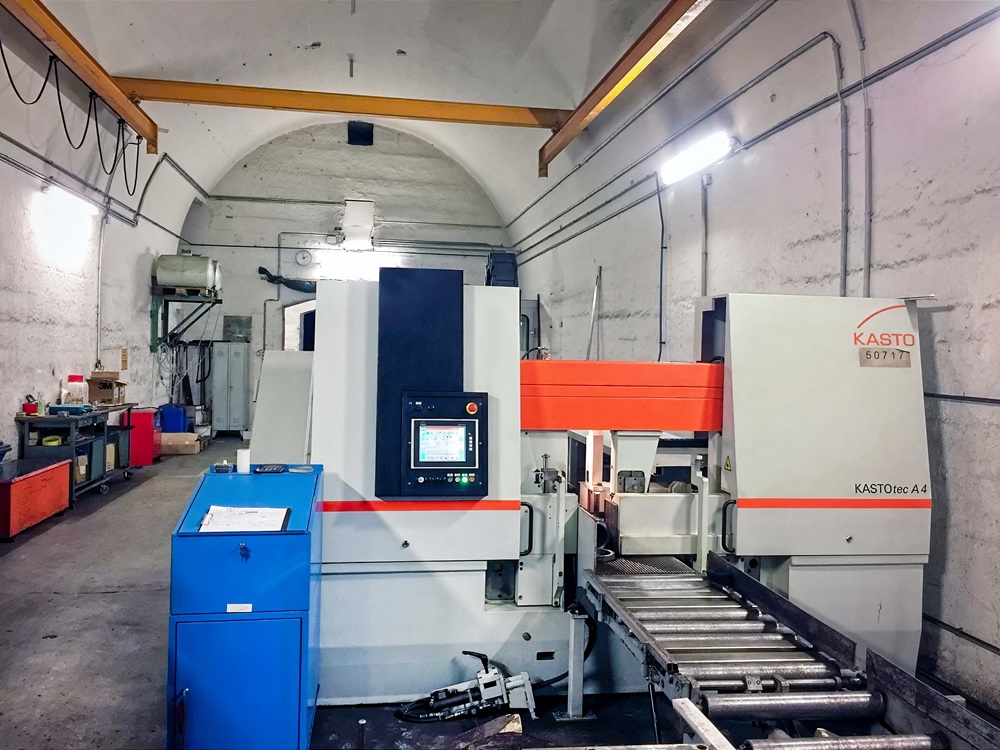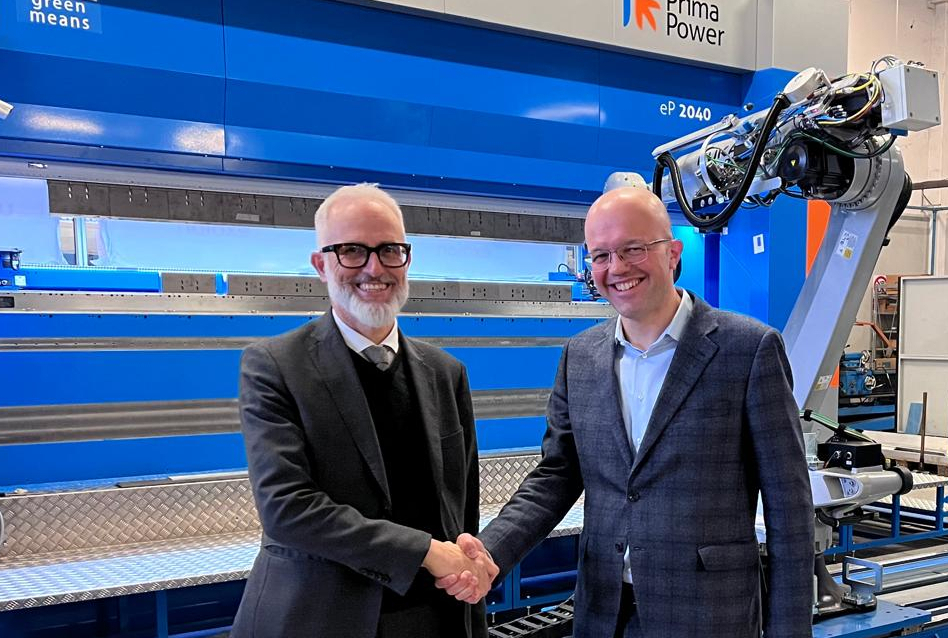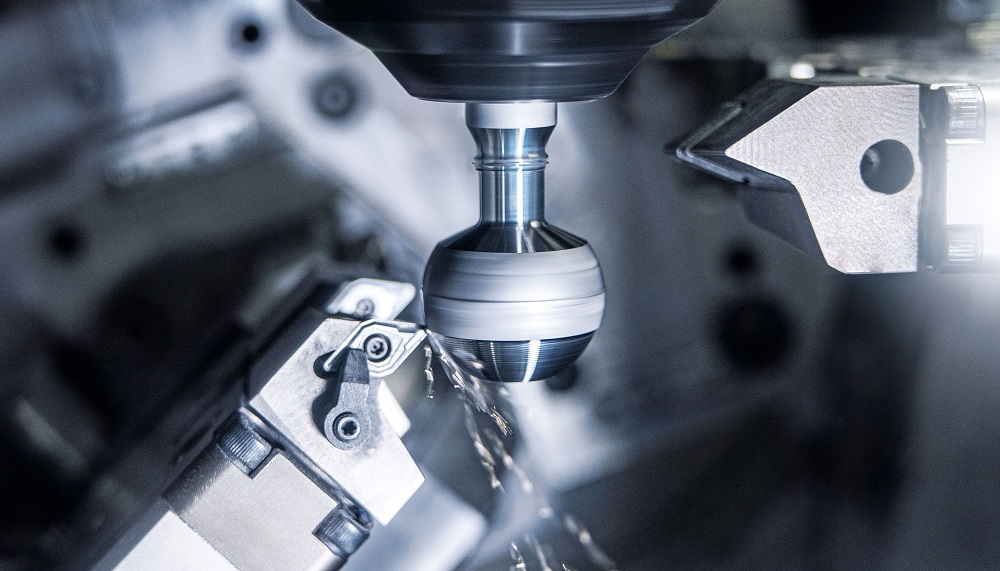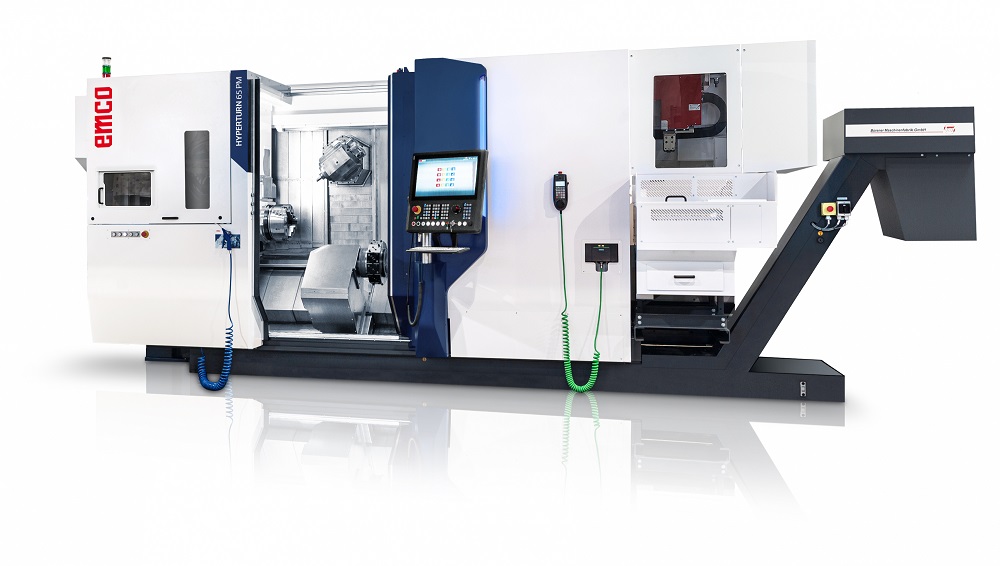What is the CO 2 footprint of a machine tool? Anyone who wants to prepare a sustainability
report for a manufacturing company or document progress in greenhouse gas emissions will
probably pass this question on to the supply chain. The answer is not easy: after all, a
machine tool consists of tens of thousands of individual parts, including purchased materials
and preliminary products. Almost every machine is unique, so how is it possible to arrive at
a value that is also valid and comparable for accountants?
“The CO 2 assessment itself is already complex,” says Professor Felix Hackelöer from the
Institute for Automation and Industrial IT at Cologne University of Applied Sciences.
“However, it is very complex for machine tools.”
Hackelöer is a member of a group of experts formed on the initiative of the VDW (German
Machine Tool Builders’ Association). The group was faced with the task of developing so-
called product category rules (PCR) for machine tools. This involves a calculation approach
that can determine the product carbon footprint (PCF), namely the CO2 of a machine tool.
Also on the team are experts from six VDW member companies – Chiron, DMG Mori, Grob,
Heller, Schuler and United Grinding – as well as experts from the VDW and VDMA
departments involved in standardisation. The aim should be to use a VDMA standard to
create a guideline that ideally can be developed into an ISO standard.
The project group met for the first time in February 2024. There was a short discovery phase
in which different experiences were reported and possible approaches were discussed. Jörg
Süssdorf, global quality manager at Schuler Pressen, says agreement was quickly reached on
some key points: “Many companies long for a simple, well-structured paper. We agreed that
our rules must also be able to be implemented for SMEs without a great deal of
bureaucracy.”
The results should be comparable and internationally adaptable. However, they should also
make it possible to recalculate or check if market participants appear to be less trustworthy.
Finally, the goal was set that the PCF could be calculated in a single day using the method to
be developed. Until now, three months at best was considered realistic.
“If all these requirements are met, there is a clear benefit for companies,” says Süssdorf.
The PCF includes all greenhouse gas emissions caused by a product in the various phases of
its lifecycle. In the first step, the VDW project group agreed on the cradle-to-gate approach.
This strategy focuses on resources, the manufacture of preliminary products and, finally,
manufacture of the end product – right up to the point at which the machine leaves the
factory.
Henning Bornkessel, senior manager for sustainability and process management at DMG
Mori, explains the reasons for this approach. “The decisive factor for us was the customer
perspective. Cradle-to-gate is a well-defined area for which we can make reliable
statements. This is exactly what our customers are interested in for their CO2 footprint.”
The most ‘heated’ discussions in the expert group were about the question of how much
detail was necessary.
“Higher-level approaches require a detailed consideration of up to 99% of a machine’s
mass,” says Hackelöer “This is not possible with machine tools.”
According to the Cologne scientist, the question arose as to what sense it makes to calculate
the PCF down to the smallest washer. The aim of the working group was therefore to
develop a methodology for the PCF of machine tools that combines good accuracy with
reasonable effort.
In the PCRs now available from the VDW project group, users are guided through the
process in nine steps. This is primarily about the machine and its individual parts. In
addition, the emissions generated directly on site by the machine manufacturer are taken
into account, as well as purchased energy sources, which are allocated to the machines
produced accordingly.
In principle, the manufacturer must first define the coverage limits. Is it just about a
company’s own product or the entire scope of delivery, including the loading robots, for
example? The machine is then virtually dismantled. All individual parts are sorted by weight
using the parts list. Control cabinets and motors must be considered separately, as they may
contain critical raw materials such as rare earths, copper or cobalt, which are associated
with high CO2 emissions. The guideline provides a practical approach for their accounting.
It gets exciting when the remaining mass of the machine (after deducting the control
cabinet and motors) is considered. Here the experts decided to apply the Pareto
principle (80/20 rule), named after the Italian economist Vilfredo Pareto, to simplify
matters. Applied to the machine tool, this means that a few parts make up the majority of
the mass – and therefore also the carbon footprint.
The task now is to use the sorted parts list to identify the components that make up at least
80% of the remaining mass. It is then possible to calculate their PCF by multiplying the
weight by the appropriate emission factor. The emission factors of the various materials is
obtainable from either the supplier or relevant databases. The remaining parts that have
not yet been reported can be extrapolated accordingly, which is quick and, according to the
experience of the experts involved, leads to a comparable level of accuracy as a complete
consideration of all parts.
In the end, the addition of the individual footprints results in the product carbon footprint
of the entire machine tool, which is specified as a CO2 equivalent in kg – a value that can be
included in any sustainability report, checked and compared with others.
In addition to the procedure described, the VDMA standard provides a sample calculation
and definitions, explanations of relevant ISO standards and references to databases for
emission factors, which can be accessed free of charge.
“All the necessary information can be found in our paper or in specified public sources,”
emphasises Süssdorf.
For the first time, there is an approach that is also practicable for the many SMEs
represented in the sector. Everything is easy to understand and can be carried out without
any training.
For Dr Matthias Baur, team co-ordinator for structural and process dynamics at Grob, the
work on the VDMA standard came at just the right time. The EU Corporate Sustainability
Reporting Directive will require the majority of companies to produce comprehensive
sustainability reports from 2025.
“Standardisation helps with common understanding and the elimination of numerous
uncertainty factors,” emphasises Baur, who has already participated in various
standardisation processes, including energy efficiency.
This view is likely to be shared by the VDW, which is committed to improving the ecological
footprint of machine tools. And for good reason, Two years ago, a visitor survey at the EMO
exhibition in Hannover revealed that focus on the future of sustainability in production was
high on the priority list for 68% of visitors. As the organiser of EMO 2025, the VDW is likely
to be very interested in providing the impetus for a new standard that makes the ecological
footprint of machine tools comparable, potentially raising it to a new level in the long term.
More information www.vdw.de/en



















